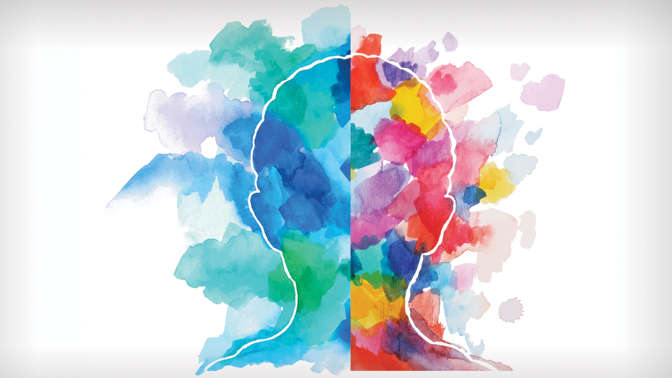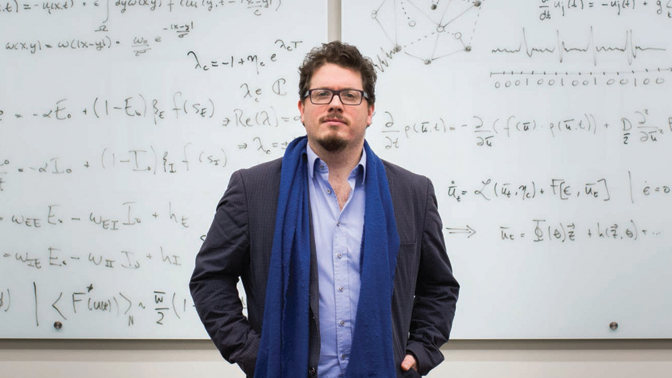
A new study led by Krembil Scientist Dr. Jérémie Lefebvre could help make repetitive transcranial magnetic stimulation (rTMS) and other forms of non-invasive brain stimulation more effective for the treatment of depression and other psychiatric illnesses.
rTMS therapy is most commonly used to treat depression that has not improved with medications or psychotherapy. It involves applying a series of short pulses from a strong electromagnet to a particular area of the brain. The pulses gradually cause long-term changes in brain activity, correcting the abnormal patterns of activity that occur in depression.
Although patients with depression have been benefitting from rTMS therapy for over 15 years, some important questions remain in the field. For example, why is rTMS more likely to influence brain activity when it is administered while the brain is performing a mental task—like performing a simple memory test—than when the brain is at rest?
To gain new insight into the mechanisms of rTMS and answer this question, Dr. Lefebvre is combining mathematics with computational models of the brain.
He applied simulated transcranial alternating current stimulation (tACS), a modified version of rTMS involving fluctuating waves of electrical currents instead of series of pulses, in different conditions of brain activity: one at rest and the other engaged in a task. He found that when the brain is at rest, cell activity is highly synchronized and resistant to the effect of tACS. In contrast, when the brain is engaged in a mental task, cell activity is much more asynchronous and more easily influenced by tACS.
“Our findings suggest that a patient’s brain is most responsive to tACS and rTMS therapy when it is engaged in a mental task. Implementing these findings in the clinic could make the therapy more effective at restoring healthy brain patterns in patients affected by not only depression, but also other psychiatric disorders,” explains Dr. Lefebvre.
This work was supported by the Natural Sciences and Engineering Research Council of Canada, the National Institute of Mental Health and the Toronto General & Western Hospital Foundation.
Lefebvre J, Hutt A, Frohlich F. Stochastic resonance mediates the state-dependent effect of periodic stimulation on cortical alpha oscillations. Elife. 2017 Dec 27;6. pii: e32054. doi: 10.7554/eLife.32054

Dr. Jérémie Lefebvre, Krembil Scientist. Photo courtesy of the Globe and Mail.

